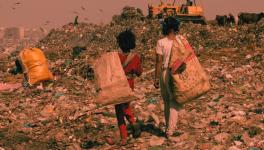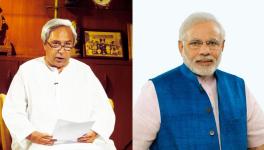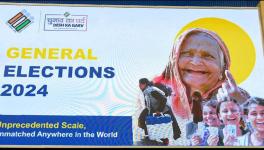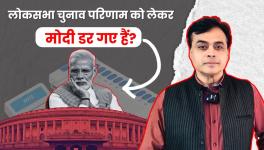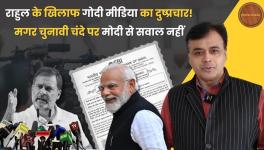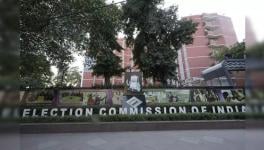India Economic Summit 2017 or Bollywood Escapism?
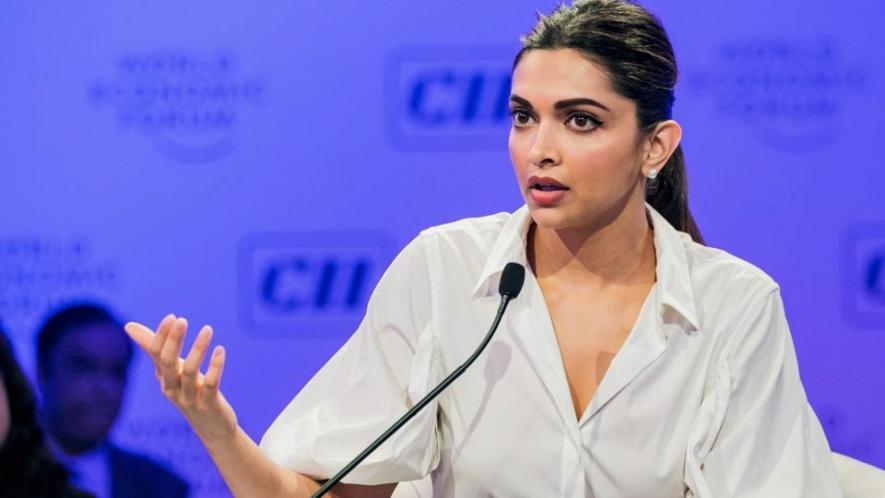
Hindustan Times
NEW DELHI: “As the world has lost its narrative on global leadership, there’s an Indian leader in the form of Prime Minister Narendra Modi, who has emerged as a strong, powerful leader, who is driving not only the Indian new agenda but also the global agenda.” Industrialist Sunil Mittal made headlines this morning with his words of appreciation and celebration at the ongoing Annual World Economic Forum in Delhi.
This set the agenda for the plenary session “Creating India Narratives on Global Challenges”. Others on the panel did not challenge or debate this narrative but went on in a similar vein throughout.
The panel discussion seemed surreal. There were declarations that we were living in a ‘G-Zero world’ and that India, because of its “international approach, innovation and inclusiveness (the 3Is)”, could seize the moment and become a global leader. Adding to the grandstanding, the Indian economic story was compared with a Bollywood film ‘where the pace picks up in the second half and we always have a happy ending’.
One wonders what these grandiose claims were based on. Was it on the fact that India remains in the bottom 15-20 per cent on most indicators of development? Or that on the Human Development Index, India ranks 131 out of 188 countries, with little improvement over time? Or that on the WEF’s own Global Gender Gap Report, our rating is 87 out of 144 countries, again showing little improvement?
To make such a claim about India’s role in the global world or even within our region is remarkable in itself; it is even more striking that no one challenged this narrative. Growth is slowing, the agricultural sector is in distress, and the much touted demographic dividend is in danger of turning into a demographic curse due to poor investments in human development, combined with jobless growth.
On top of it all, inequality is exploding. India has become the second most unequal country among large countries in the world, whether measured in terms of income (after South Africa) or wealth (after Russia). Ironically, this movie-like story with a happy ending was being narrated on the same day as news of the ‘Indian economy slowing down and the net worth of the wealthiest 100 going up by 26 per cent’ hit the headlines.
The next session, “Reform, Perform and Transform”, was to address the question: “What reforms will power India to a $10 trillion economy that is inclusive and broad-based?”
The hope was that the panelists would address issues such as ensuring ease of doing business; implementing reforms for inclusive growth; and moving beyond short-term fixes.
Unfortunately, the hope soon faded! A leading Indian industrialist termed the introduction of the GST as the biggest reform since India’s independence. The billionaire saw the slowdown in economic growth as a ‘very temporary one (one or two quarters) caused by accumulation of stocks post GST implementation’ – suggesting that this was something that one need not worry about. Another panelist felt that there were practically no issues in terms of ease of doing business, that India had ‘transformed from night to day’, with some business processes that would earlier take weeks or months now taking mere days. But these statements are far from the reality. In the World Bank’s Ease of Doing Business Index, India still ranks at 130, despite a stated ambition to jump up 40 places to reach the 90th rank.
My hopes finally died after I asked what reforms were required to deliver inclusive growth and to deal with the exploding inequality—was it to put in place a more progressive tax system, was it to increase public spending and public investments in basic health and education, was it in the labor market, in the land market, etc? The response I got from the well-known industrialist was that only “communists” measured the ratios of the incomes or wealth of the rich in relation to the poor and that ‘we are not a communist country’. He claimed that poverty has been reducing, that one should focus on poverty and stop looking at inequality. And, of course, that ‘free enterprise’ would continue to deliver poverty reduction.
This response -- despite the fact that participants in the World Economic Forum have themselves being identifying rising inequality as one of the top three risks that the world is facing because of what it means for the sustainability of economic growth, the capture of politics by the elite, and the breakdown of the social contract leading to high levels of crime and violence in a society. This response -- on the same day the media reported that the government is considering levying an inheritance tax on HNIs in an effort to curb inequality. This response -- in a country that, on an Oxfam index which measures Commitment to Reducing Inequality, is one of the countries with the highest level of inequality and the least policy commitment to do anything about the situation.
I have attended several of these summits in the past. This year’s meeting appeared to be the most disconnected from reality, more of a PR exercise than a meeting to discuss and debate solutions to pressing economic problems. It was also the least representative in terms of diversity of participants and views. And certainly the least focused on economic issues despite being labeled as an Economic Summit. There were sessions on mental depression, art, yoga, Ayurveda, cancer, heart disease, Bollywood, and so on. All very interesting and relevant topics that I would love to know more about, but not at an Economic Summit.
I left after attending these two sessions. Maybe the Bollywood theme that permeates every other narrative in India is also the way forward for the World Economic Forum/India Economic Summit. Come and be entertained for a few hours and forget the woes of the real world! Good time pass and paisa vasool!
Disclaimer: The views expressed here are the author's personal views, and do not necessarily represent the views of Newsclick.
Get the latest reports & analysis with people's perspective on Protests, movements & deep analytical videos, discussions of the current affairs in your Telegram app. Subscribe to NewsClick's Telegram channel & get Real-Time updates on stories, as they get published on our website.










